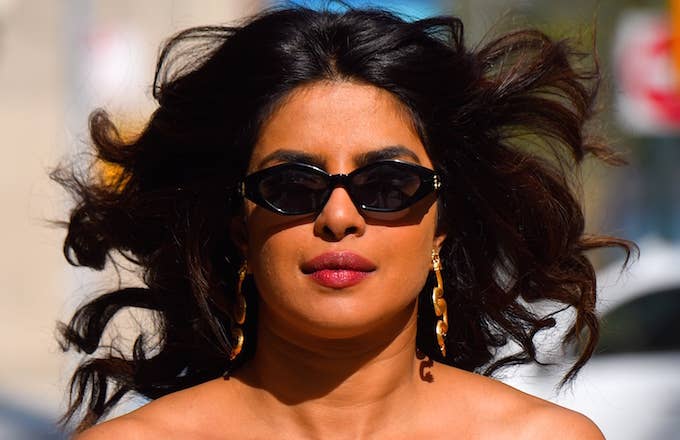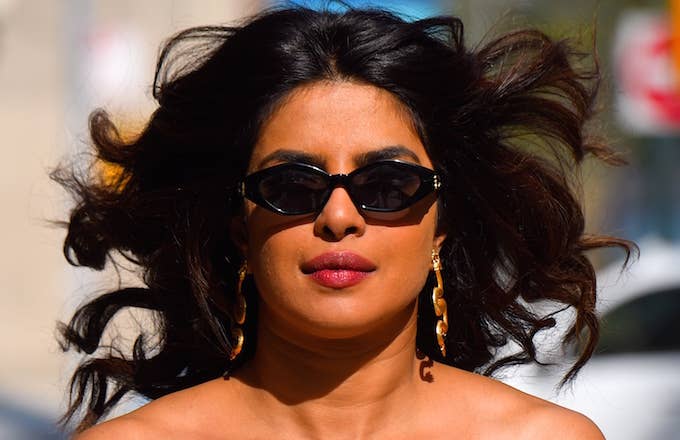
The Simpsons is in the midst of a controversy regarding the stereotypical representation of Indian Americans through its portrayal of the Kwik-E-Mart–owning character of Apu. There’s been a quietly growing, increasingly powerful grassroots movement against the depiction, pushed to the forefront of our culture by comedian Hari Kondabolu, who made the documentary The Problem with Apu.
Priyanka Chopra—who is no stranger to telling it like it is when it comes to Hollywood—just visited The View and shared her two cents on the matter. “[Apu] was the bane of my life, growing up,” she said. “There’s a couple of things, like a lot of people are talking about, ‘Oh, the show is so successful for 30 years, why are we suddenly waking up and being offended by a character that everyone loved?’ People say that The Simpsons makes fun of every race, they talk about stereotypical characters—every character is stereotypical—which is true, but…the show aired, I think, in ’89, and it was path-breaking at that time for television."
Chopra went on: "Everyone looked yellow except Apu. So that made him stand out completely. Plus he had the accent, and not all of us speak like that," she said, mimicking Apu.
Simpsons creator Matt Groening recently responded to the criticism by claiming “people love to pretend they’re offended.” While Groening might be right that being offended can be a disingenuous stance, there’s no denying that this groundswell of people of color, who are yelling at the top of their lungs for empathetic representation, isn’t a genuine plea.
It’s strange for Groening to claim this particular hill to die on—why not assuage people and help future generations of children who are growing up and being mocked for their accents or skin color by simply altering your cartoon character? In any case, Chopra had more to say, and we’re here for it.
“The population of Indian Americans in America has tripled since that time,” said Chopra, referring to the show’s premiere in 1989. “So the voice is louder. Representation and the demand for representation for people of color is louder. There’s the internet and the media where people can have a conversation—and even if someone was offended at that time, which I was, I was always asked…did I find gold in my rivers, did we go to school on elephants. I always had questions like that. So I think yes, it is a time where we try and erase stereotypes. Yes, it’s a cartoon, yes, it’s a pop culturally super-successful show—but that gives it more responsibility. It’s out of date, it’s not evolving on so many levels.”
Amen.
In case you're ready for conflicting opinions on the matter, have a look at some of the Twitter reactions:

